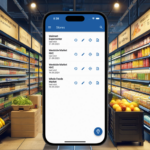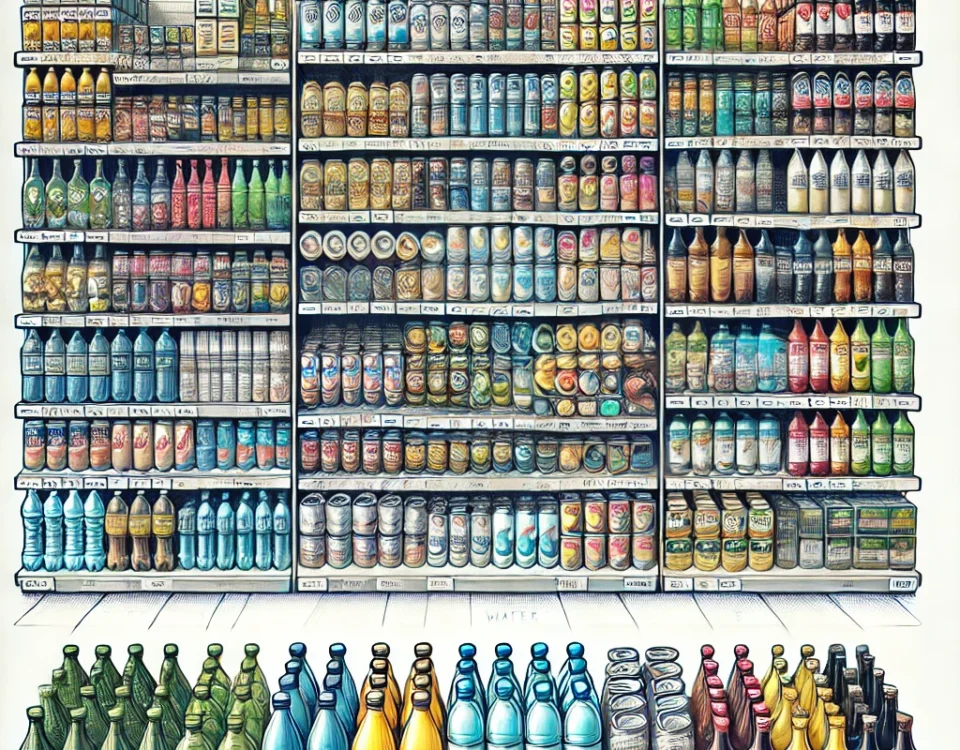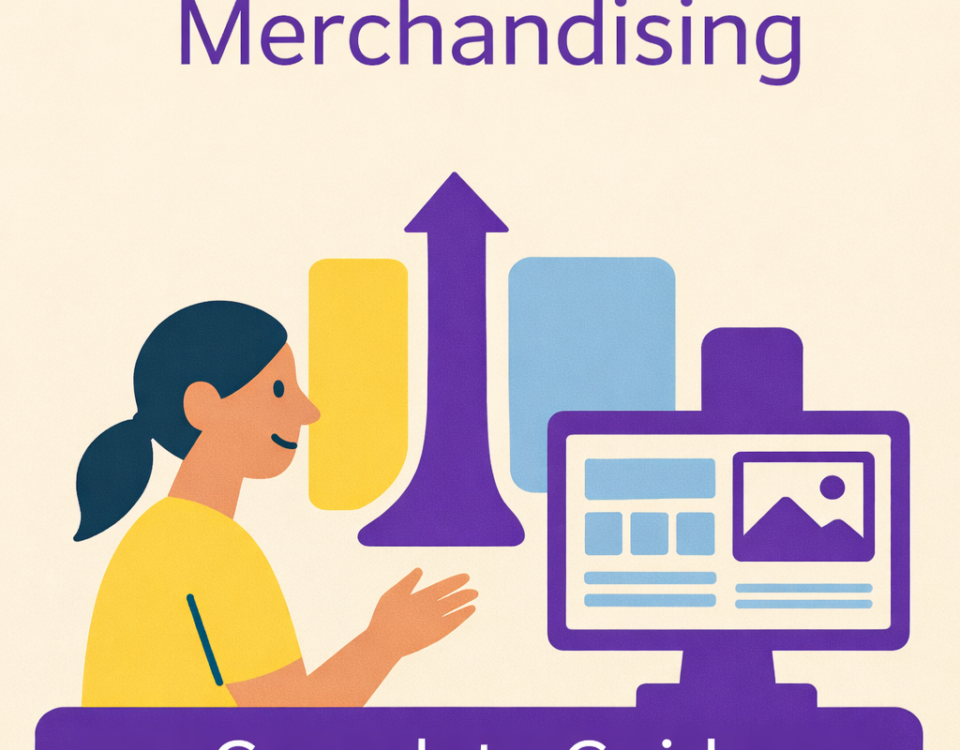
Beyond Chat Apps: Revolutionizing Field Operations with Movemar

Merchandising: what it is and how it is used in retail
Empowering your field operations in FMCG: Are you equipped for success?
Introduction
The fast-moving consumer goods (FMCG) sector thrives on the speed, efficiency, and effectiveness of its field operations, encompassing both sales and merchandising. Yet, in this swiftly evolving landscape, many professionals find themselves hindered by outdated operational tools. These challenges aren’t confined to field sales alone but extend across the spectrum of field work, affecting merchandising, market analysis, and customer engagement strategies.
This blog post sheds light on pivotal questions that FMCG field managers—spanning sales, merchandising, and beyond—should ask to assess whether their operational tools are merely meeting the bare minimum or truly enhancing their field operations.
As we delve deeper, we aim to underscore how adopting a modern, integrated operational toolkit, such as Movemar or similar platforms, can revolutionize your FMCG field operations, catapulting your productivity, market responsiveness, and customer satisfaction to new heights.
Join us as we explore the foundational elements of an effective operational toolkit, ensuring your team is not just navigating but excelling in the competitive FMCG landscape.
Learning the Solution: Onboarding, Training, and User Experience
- Does your current onboarding process extend beyond 30 minutes before a rep can effectively use the solution in the field?
Efficient onboarding is crucial for rapid deployment in the field. A streamlined process not only accelerates the readiness of your team but also enhances their confidence in using the tool, ensuring that they can hit the ground running with minimal downtime. - Is your team frequently seeking technical support or encountering bugs?
Regular need for technical support or frequent bugs can significantly disrupt field operations, leading to lost productivity and frustration among team members. A robust platform should offer intuitive troubleshooting and stable performance to keep your team focused on their core tasks. - Does the platform’s design feel outdated compared to the modern applications you use daily?
In today’s digital era, the usability and aesthetic appeal of a platform are just as important as its functionality. An outdated interface can hinder user adoption and engagement, making it critical to choose a solution that feels familiar and aligns with the modern apps your team uses every day.
Field Team Management: Streamlining Operations
- Are you unable to independently set up or modify forms without reaching out for technical support?
Autonomy in creating and customizing forms is essential for agility in field operations. Dependence on technical support for these tasks can slow down your response to market changes and customer needs, underlining the importance of a platform that empowers users with user-friendly form management. - Do you lack the ability to view real-time summary reports on your data collection initiatives?
Access to real-time data is pivotal for making informed decisions swiftly. Without it, you’re navigating in the dark, missing out on critical insights that could shape more effective strategies and immediate actions on the ground. - Can your area managers not tailor forms to meet their unique regional needs?
The ability to customize forms for specific regional requirements acknowledges the diverse challenges and opportunities in different markets. A one-size-fits-all approach often falls short, highlighting the need for a flexible platform that accommodates local nuances. - Are your reps required to use separate tools for route planning and data collection?
Juggling multiple tools for route planning and data collection can complicate what should be a streamlined process, increasing the risk of errors and inefficiencies. A unified tool that integrates these functions can significantly enhance productivity and focus. - Do area managers face challenges in adding new visits to their team’s calendars for unexpected priorities?
Flexibility to adapt to sudden changes or opportunities is crucial in field operations. If area managers struggle to adjust schedules swiftly, it can lead to missed opportunities and reduced responsiveness to market dynamics. - Are team managers unable to assign or track field tasks and jobs for their teams?
Effective task management and tracking are core components of managing a field team’s productivity and success. A lack of these capabilities can lead to disorganization, unclear priorities, and missed objectives, underscoring the need for a comprehensive management platform.
In-Store Execution: Enhancing Field Agility
- Do your reps risk losing data or functionality when they’re offline or without cell service/WiFi?
In today’s retail environment, uninterrupted access to critical tools and data is essential, even in offline scenarios. Losing data or functionality due to connectivity issues can significantly impede in-store execution, emphasizing the need for a platform with robust offline capabilities. - Are your sales and merchandising teams working on disjointed systems for field tracking?
When sales and merchandising teams operate on separate systems, it creates inefficiencies and communication barriers that can hamper the execution of in-store strategies. Integrating these functions into a single system enhances collaboration and streamlines operations. - Must your reps employ multiple applications to place orders or submit data, resorting to email instead of a unified system?
The use of multiple applications for basic tasks like order placement and data submission complicates the workflow, leading to potential errors and inefficiencies. A unified system that consolidates these processes can dramatically improve operational speed and accuracy. - Is manual data syncing required between your CRM or reporting platform?
Manual syncing between different platforms not only consumes valuable time but also increases the risk of data inconsistencies. Automated synchronization ensures that all systems are updated in real-time, providing accurate insights for decision-making. - Does your platform not support digital file and planogram hosting, forcing reps to use external photos or printed materials?
Access to digital files and planograms directly within the platform streamlines the merchandising process, ensuring that reps have immediate access to the information they need for accurate in-store execution. Relying on external photos or printed materials is less efficient and can lead to compliance issues. - Are reps compelled to allocate admin time during their schedule for email recaps of their visits?
Requiring reps to dedicate time to administrative tasks like email recaps reduces the time available for customer engagement and other high-value activities. Platforms that facilitate instant reporting and feedback directly from the field can significantly reduce administrative overhead and enhance overall productivity.
Insights and Actions: Driving Decisions with Data
- Are you unable to take immediate, targeted actions based on the prior day’s field execution?
The ability to rapidly respond to field execution data is crucial in today’s competitive FMCG landscape. Delays in action can mean missed opportunities and decreased responsiveness to market trends. A platform that doesn’t enable quick, data-driven decisions from recent activities may hinder your ability to stay agile and responsive to the evolving market dynamics, underscoring the importance of real-time analytics and actionable insights.
Key Takeaways
For Field Sales Managers:
- Efficiency and Integration: Embrace solutions that offer streamlined onboarding, integrated tools for route planning and data collection, and support offline functionality to ensure field operations are as efficient as possible.
- Data-Driven Decision Making: Prioritize platforms that allow for real-time insights and the ability to quickly act on the previous day’s execution to stay responsive to market demands.
For IT Professionals:
- Technical Robustness and Scalability: Assess platforms for their stability, integration capabilities, and ability to meet the dynamic needs of field operations.
- Security and Support: Ensure the chosen solution offers strong security measures, comprehensive data management, and reliable support structures to maintain uninterrupted service.
Next Steps
For Field Sales Managers:
- Evaluate Current Tools: Use the provided checklist to identify inefficiencies within your existing platform.
- Research and Demo: Explore advanced platforms like Movemar that meet the outlined criteria. Arrange for demos to see the features in action.
- Consult and Decide: Discuss potential solutions with your team and IT department to ensure the chosen platform aligns with both operational and technical requirements.
For IT Professionals:
- Collaborative Assessment: Work alongside field sales managers to understand the practical challenges and requirements from an operational perspective.
- Technical Evaluation: Dive deeper into the technical specifications of potential platforms, focusing on integration, customization, and support.
- Security and Scalability Review: Ensure the platform not only fits current needs but is also scalable and secure for future expansion.
By following these tailored next steps, both field sales managers and IT professionals can collaboratively ensure that the chosen field management solution effectively supports and enhances the FMCG company’s field operations, leading to improved efficiency, data accuracy, and overall sales performance.



